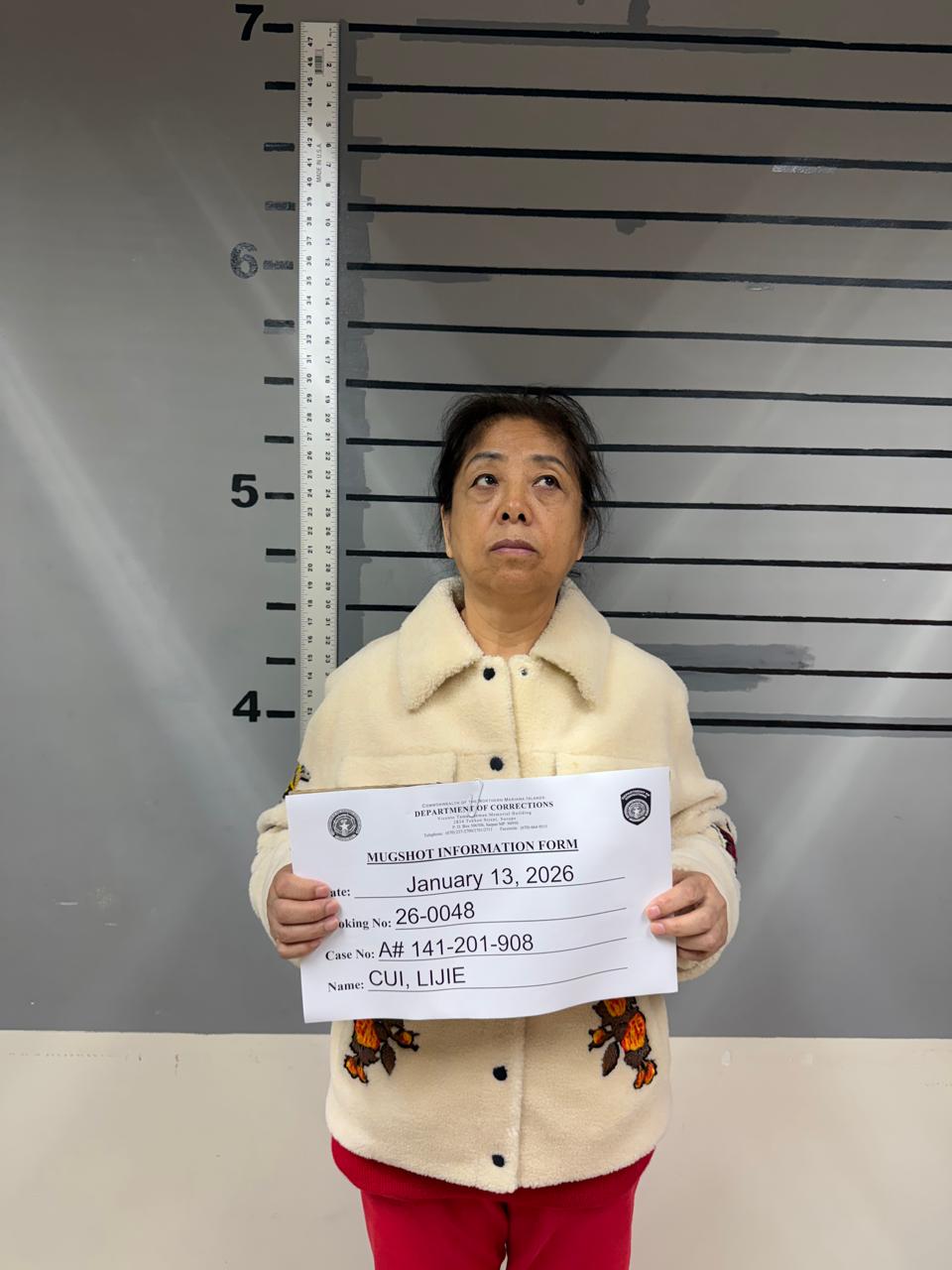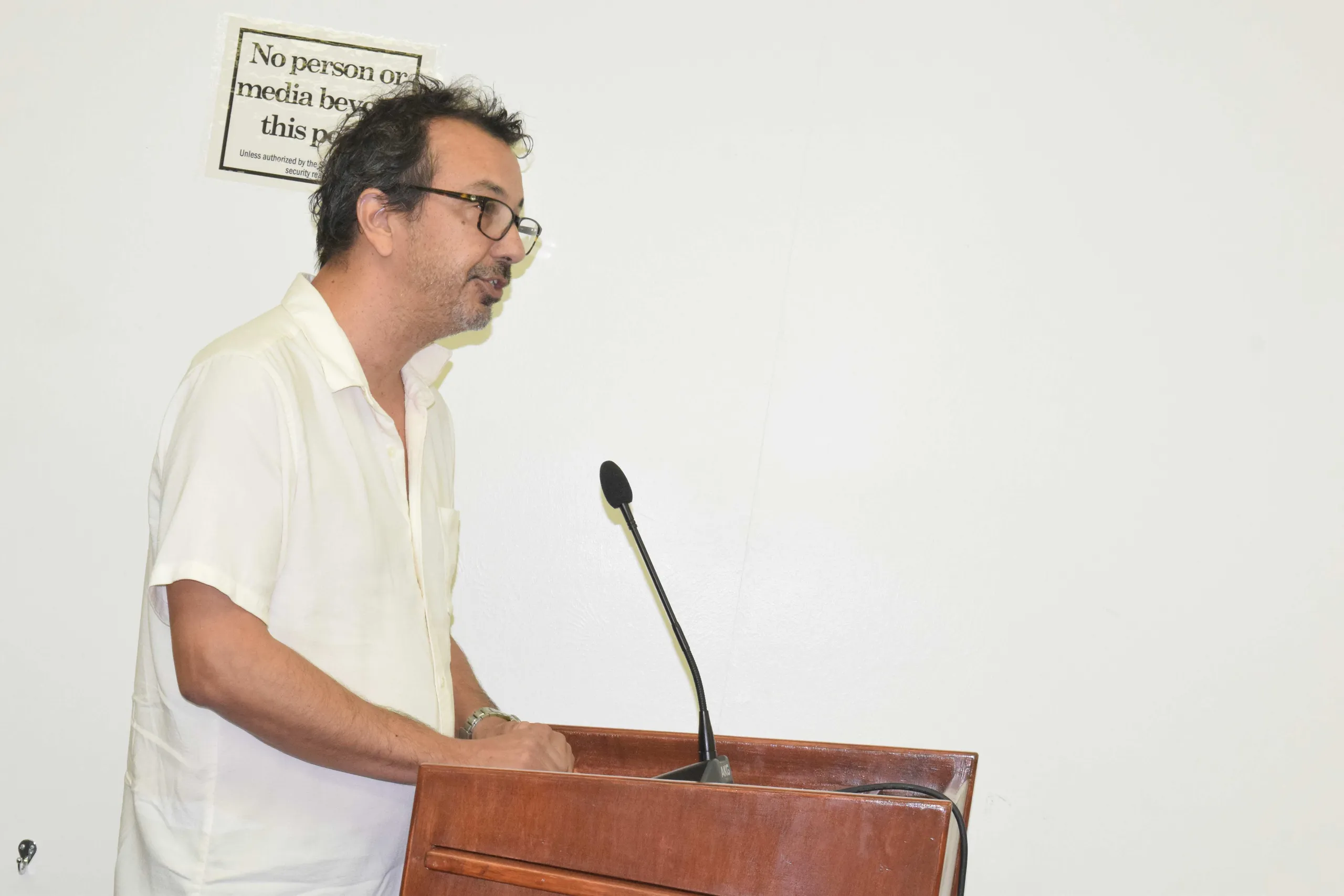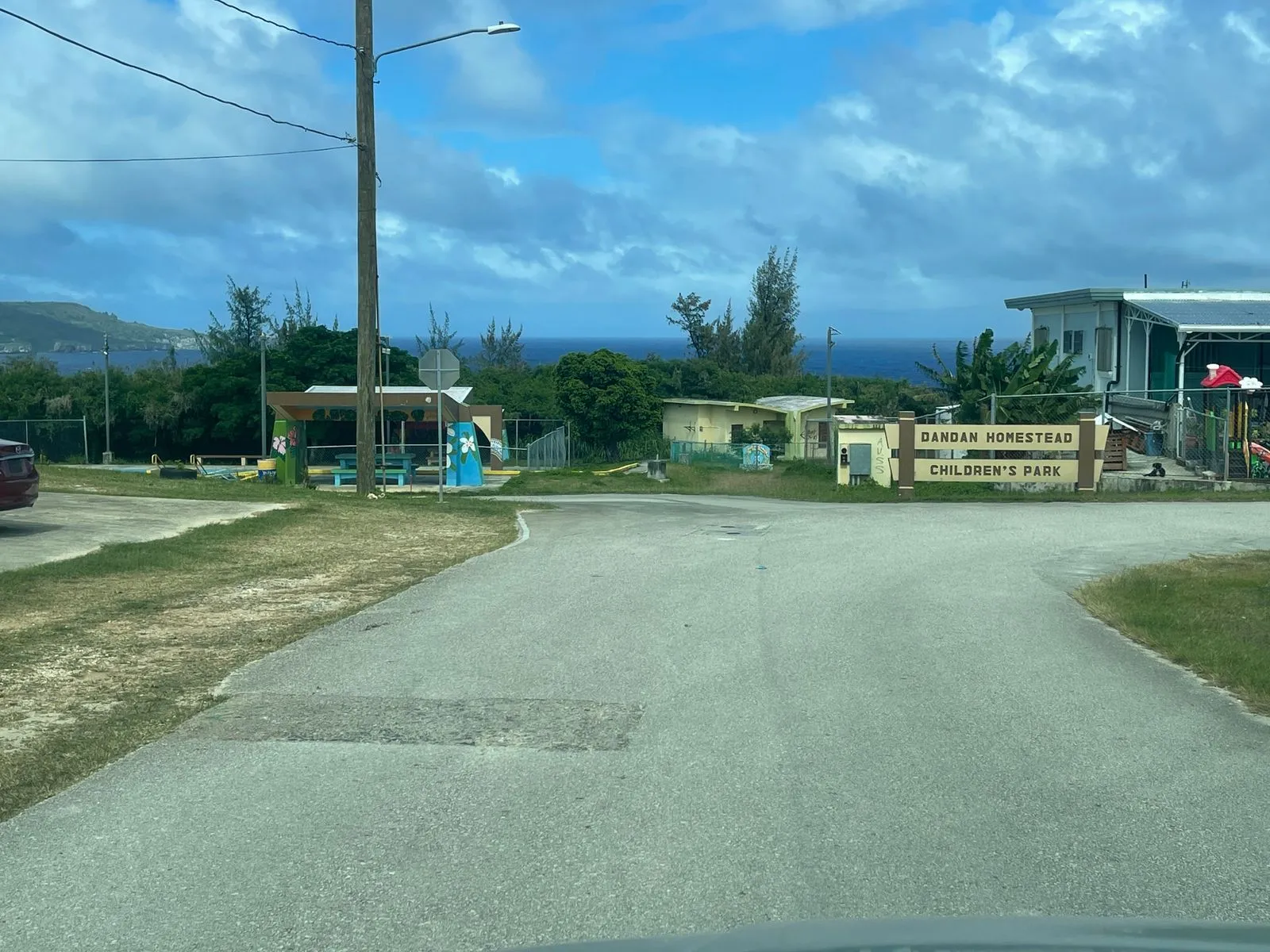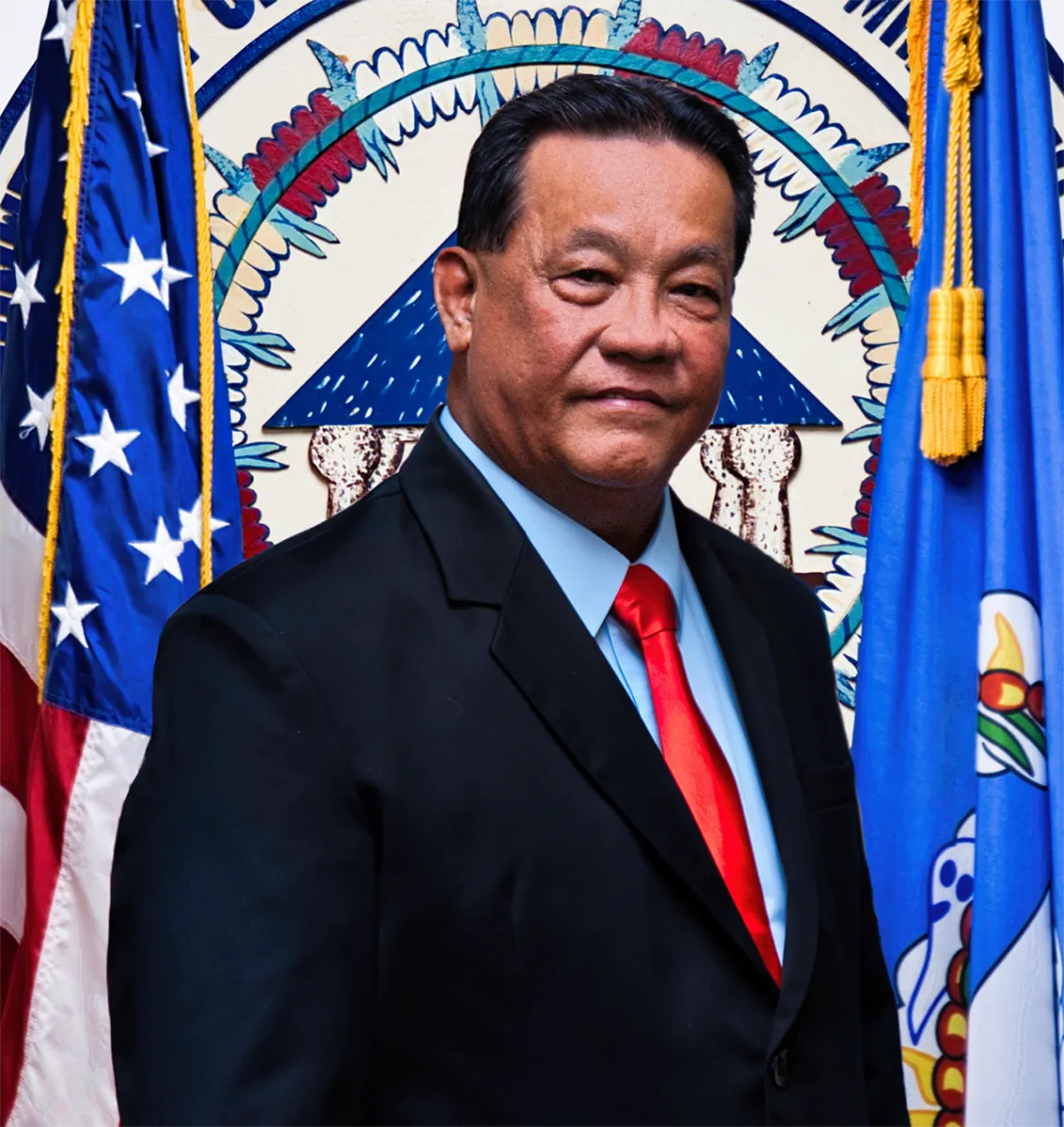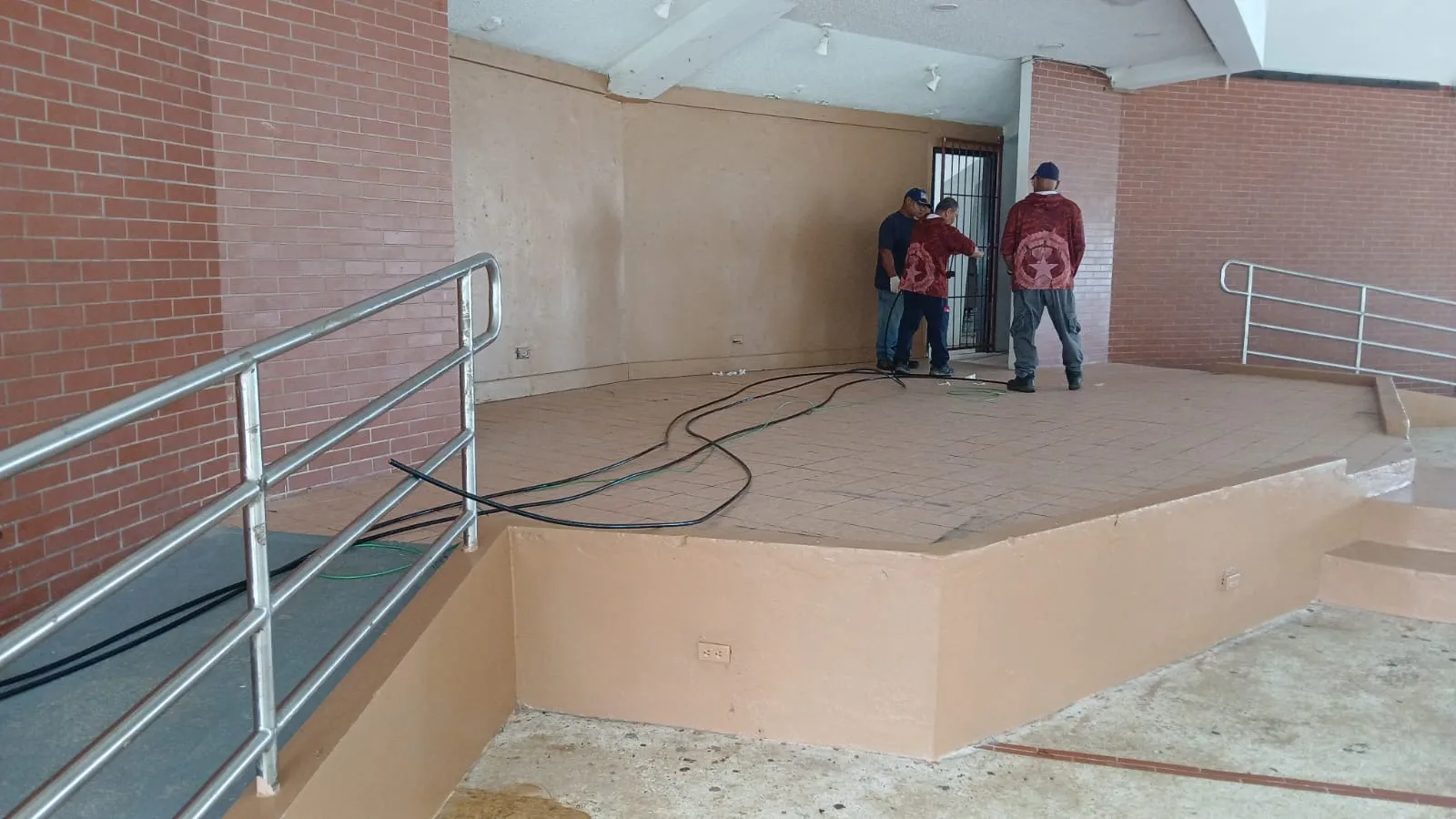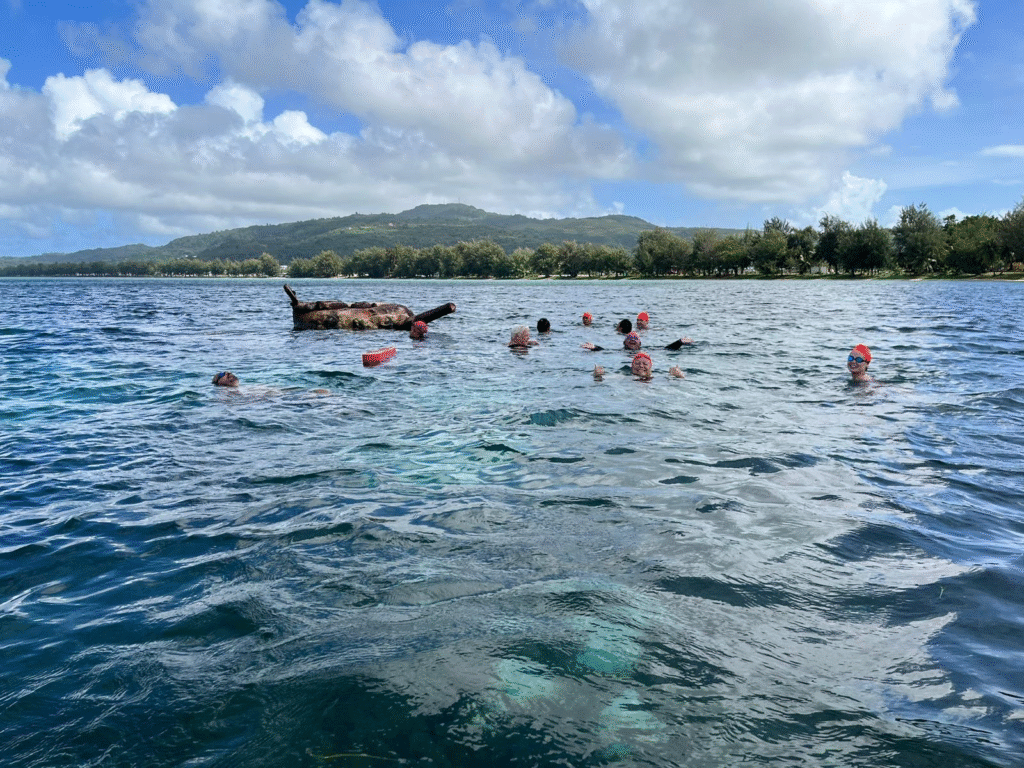
Program participants and 500 Sails staff and volunteers take the water tread test on Nov. 30.
NORTHERN Marianas College’s Community Development Institute and 500 Sails launched the Basic Traditional Seamanship program on Saturday with a prerequisite swim test at the Guma Sakman beach in Susupe.
Nine students took the test and seven completed it. A final, official tally of those who passed and failed will be released by NMC-CDI this week.
Participants were required to swim an untimed 400-meter course in the lagoon without stopping. They were allowed to use any swimming stroke.
They were also required to tread water for one hour. The participants took the water treading test next to the World War II tank closest to the Guma Sakman during high tide in approximately six feet of water.
With the swim test completed, the participants will take part in a 10-week course that introduces them to the “artistry and science of traditional seamanship, offering both historical insights and hands-on skills that have guided seafarers for generations,” according to a news release from the college.
The program serves as an introductory course for sailing the Chamorro vessels created by 500 Sails.
Participants will experience a mix of in-class lessons and hands-on sailing. The class portion will cover topics, such as point of sail, knot tying, safety, and more. The hands-on portion involves students lashing to the mast and sail, maneuvering the canoe, man overboard scenarios, capsizing and righting the canoe.
Monique Sablan, NMC-CDI director, said the partnership with 500 Sails is a collaboration to provide educational opportunities that go beyond “workforce development.”
“We always have to remember that training is not just for workforce development but also training to sustain and continue cultural development,” she told Variety. “500 Sails does a lot of amazing work and so [we’re] having a partnership that focuses more on sustaining our environment, sustaining our culture. Teaching our young folks, teaching even those not of our culture about our culture is very important.”
She added that the partnership allows NMC to offer classes “you might not find at an educational institution.”
“That’s our job — to also provide outside perspectives, outside opportunities,” she said.


